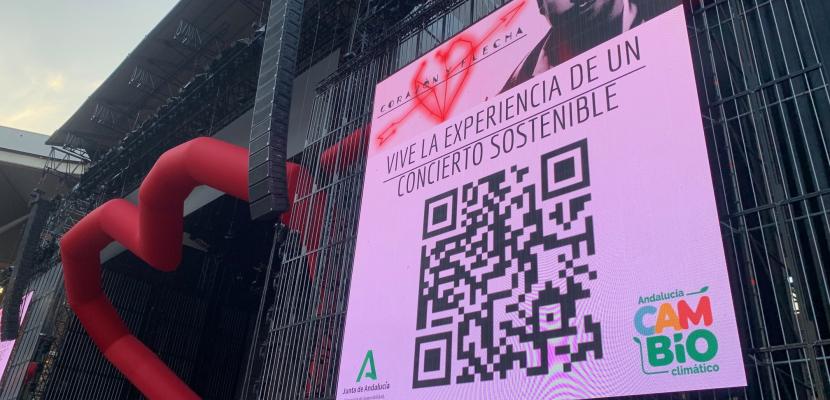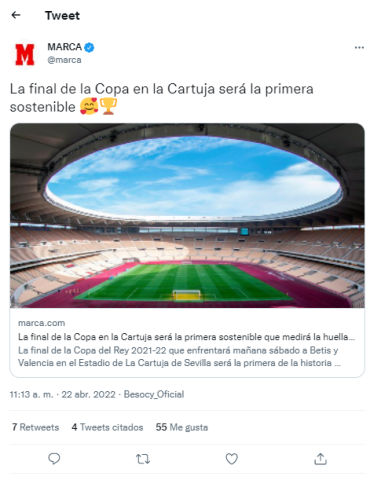
Protocol of Carbon Footprint calculation for sustainable events

About this good practice
The idea to develop the protocol arised in the Climate Change Office of Andalusia Government due to growing concern about the high impact of big events in Environment
Non - existing regulatory framework about how to measure “sustainability” of events was a opportunity to develop this voluntary protocol based on a standard methodologies to promote sustainable events and its contribution to climate change
After several year developing tools, protocol and official register to (CO2) measure, control, reduce and finally compensation emission for organisations and companies. The aim was to extend the scope and apply for events.
The documents provide recomendations to design sustainable events focusing on as much different sources of emissions as different phase of events ( staging, development and dismantling). In addition,carbon footprint calculation is proposed according the following procedure:
1. Choosing Calculation CF methodology
2. Designing map of event’s process
3. Defining limits of analysed system
4. Info compilation (activity and emission factors)
5. Carbon footprint calculation
6. Reporting and minimization (including Co2 emissions compensation)
Some technical information about emissions of activities is provided as a source to help event organizers to make calculations more efficiently and accurately.
Protocol for calculating the carbon footprint in sustainable events is attached (Spanish version)
Resources needed
Specialised professionals prepared the protocol and tested for but financial resources allocated were just related to human resources.
Evidence of success
This protocol was followed for the event “Presentation of app Carbon Footprint of Andalusian Municipalities 26th Oct 2022 Seville: 2h at morning
Measurement of the carbon footprint of the Copa del Rey soccer Final. 23th April 2022 and 6th May 2023
Measurement of carbon footprint in Manuel Carrasco's musical concert.2-3 June 2023
Potential for learning or transfer
This protocol is being potentially interesting for other regions because it is transferable to any location and allow to measure and compare environmental impacts of events anywhere
Results achieved:
As a result of the 2022 Copa del Rey Final, 2,225 tCO2e were generated, which is equivalent to 436 cars circulating for a year (an average vehicle emits 5.1 tCO2/year). From the analysis of this result, a series of measures were established to reduce the carbon footprint of this event, among which the reduction in the use of private vehicles, reducing the energy supply by contracting renewable electricity supply companies or the installation of photovoltaic panels or improving waste segregation due to the great impact that the organic fraction has (Attached is the Executive Report on the Carbon Footprint of the 2022 King's Cup Final).
Further information
Images
Documents
Protocolo HC_Eventos Sostenibles.pdf
Summary _ 2022 King's Cup Final .pdf
Good practice owner
You can contact the good practice owner below for more detailed information.

